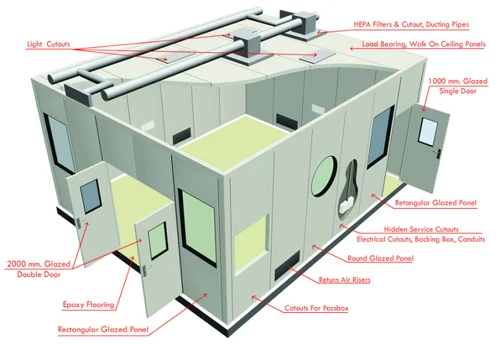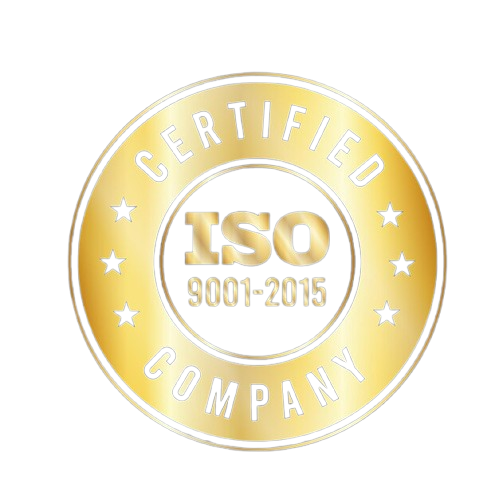How Isomers Impact the Efficiency of Cleanroom HVAC Systems: A Guide by Wiselink Group
In industries such as pharmaceuticals, biotechnology, electronics, and semiconductor manufacturing, maintaining strict environmental control is essential. Cleanrooms play a crucial role in ensuring that contaminants are kept at bay, enabling the production of high-quality products. One of the core components of cleanroom systems is the HVAC (Heating, Ventilation, and Air Conditioning) system, which regulates air quality, temperature, and humidity. However, a less-discussed but highly influential factor in the efficiency of cleanroom HVAC systems is the role of isomers.
At Wiselink Group, we understand the importance of optimizing cleanroom systems for maximum performance and efficiency. We also specialize in the sale of high-quality isomers, which are essential in many industrial applications, including those that affect cleanroom HVAC systems. In this article, we’ll explore the relationship between isomers and HVAC systems and provide insights into how these compounds impact the cleanroom environment.
What Are Isomers?
Before diving into their impact on HVAC systems, it’s important to understand what isomers are.
Isomers are compounds that have the same chemical formula but differ in the arrangement of atoms. This means that while they share the same molecular composition, their physical and chemical properties can be drastically different. Isomers can be classified into two main types:
- Structural Isomers – These isomers differ in the connectivity of their atoms, meaning the atoms are arranged in a different order.
- Stereoisomers – These isomers have the same connectivity but differ in the spatial arrangement of their atoms. The two primary categories of stereoisomers are enantiomers and diastereomers.
Isomers play a crucial role in various chemical processes, and their behavior in HVAC systems can influence the overall efficiency of cleanrooms, particularly in terms of air quality, filtration, and contamination control.
The Importance of Cleanroom HVAC Systems
Cleanroom HVAC systems are designed to maintain precise environmental conditions, ensuring that contaminants like dust, microbes, and particulate matter are controlled. HVAC systems in cleanrooms help regulate:
- Temperature – Keeping the environment at an optimal temperature is critical to maintaining product quality and worker comfort.
- Humidity – Maintaining the right level of humidity prevents static build-up and the growth of harmful organisms.
- Air Flow – Cleanrooms require constant air circulation to filter out particles and prevent contamination.
Efficient HVAC systems are essential to minimizing operational costs, improving production outcomes, and meeting industry-specific standards like ISO 14644 and GMP (Good Manufacturing Practices). These systems rely on precise monitoring of the air composition and chemical balance.
How Isomers Impact Cleanroom HVAC System Efficiency
Now that we understand what isomers are and the role of cleanroom HVAC systems, let’s explore how isomers can influence the performance of these systems.
1. Impact on Air Filtration Systems
In cleanrooms, HVAC systems rely on air filtration to remove particles and gases from the air. Isomers, particularly volatile organic compounds (VOCs), can be released into the air due to chemical reactions, machinery, or materials in the cleanroom. These VOCs can impact the performance of filters in HVAC systems.
When isomers like VOCs are present, they can overwhelm filtration systems designed to eliminate airborne contaminants. For instance, isomers with similar chemical properties but different structures can behave differently in filters. Some may be more difficult to filter out, requiring more advanced filtration technology, such as activated carbon or HEPA filters, to maintain air quality standards.
By understanding the specific types of isomers present in a cleanroom, HVAC engineers can select the appropriate filtration systems that are more effective at capturing and removing specific isomers and their byproducts. This reduces wear and tear on the filtration system, ensuring better performance and longer service life.
2. Increased Energy Consumption
The presence of isomers in cleanrooms, especially in volatile forms, can lead to inefficiencies in HVAC operations. When isomers accumulate in the air, the HVAC system may have to work harder to maintain the required air quality. This can lead to increased energy consumption, as the system runs longer or at higher speeds to compensate for the additional contaminants in the air.
Energy-efficient HVAC systems in cleanrooms are critical to lowering operational costs. By controlling and reducing the number of isomers in the air, Wiselink Group can provide the products and solutions that help mitigate this impact. Our isomers and filtration solutions can assist in reducing energy consumption by preventing unnecessary strain on HVAC systems.
3. Impact on Temperature and Humidity Control
Isomers can also affect temperature and humidity control in a cleanroom environment. Certain isomers, especially in industrial settings, can emit heat as part of their chemical reactions. This heat emission can skew the temperature control system, forcing HVAC units to overcompensate and adjust the temperature more frequently than necessary.
Additionally, some isomers, particularly those used in manufacturing processes, can impact the humidity levels in the cleanroom. For instance, volatile isomers may contribute to increased moisture in the air, which can lead to higher humidity levels. This, in turn, may force the HVAC system to adjust the humidity levels more aggressively, increasing both energy consumption and operational wear.
By carefully managing the presence of isomers in cleanrooms, HVAC systems can maintain more stable temperature and humidity levels, reducing unnecessary adjustments and improving overall system efficiency.
4. Contamination Control
One of the primary functions of a cleanroom HVAC system is to prevent contamination. Isomers can contribute to both chemical and particulate contamination. Even trace amounts of isomers can have a significant impact on the cleanliness of the environment.
For example, in the semiconductor or pharmaceutical industries, isomers can affect the chemical purity of products, leading to defects or failures in production. As isomers are volatile and can become airborne, they may enter the ventilation system, bypass filters, and contaminate sensitive equipment or products. HVAC systems are designed to mitigate such risks, but the presence of isomers can complicate this process.
Wiselink Group provides solutions that help eliminate or reduce the risk of contamination from isomers. Through our high-quality isomer products and filtration solutions, we enable cleanroom operators to achieve a higher standard of contamination control.
Why Choose Wiselink Group for Your Cleanroom Isomer Needs?
At Wiselink Group, we not only offer high-quality isomers but also provide comprehensive solutions that enhance the efficiency of cleanroom HVAC systems. By understanding the impact of isomers on HVAC performance, we work with our clients to provide tailored solutions that reduce operational costs and enhance cleanroom productivity.
We offer a range of services and products, including:
- Supply of High-Quality Isomers – We provide a variety of isomers that cater to specific industrial needs, ensuring that you have the right chemical compounds for your cleanroom environment.
- HVAC Optimization Services – Our team of experts can assess your current HVAC systems, recommend improvements, and supply the necessary filtration systems to handle isomer contamination.
- Custom Solutions – We understand that every cleanroom has unique needs. Our team works with you to create bespoke solutions that ensure your HVAC system operates at peak efficiency.
Get in Touch with Wiselink Group Today
At Wiselink Group, we are committed to helping industries maintain the highest standards of cleanliness and efficiency. By understanding the role of isomers in HVAC systems, we can provide solutions that not only enhance the efficiency of your cleanroom systems but also ensure that your operations meet the most stringent environmental standards.




